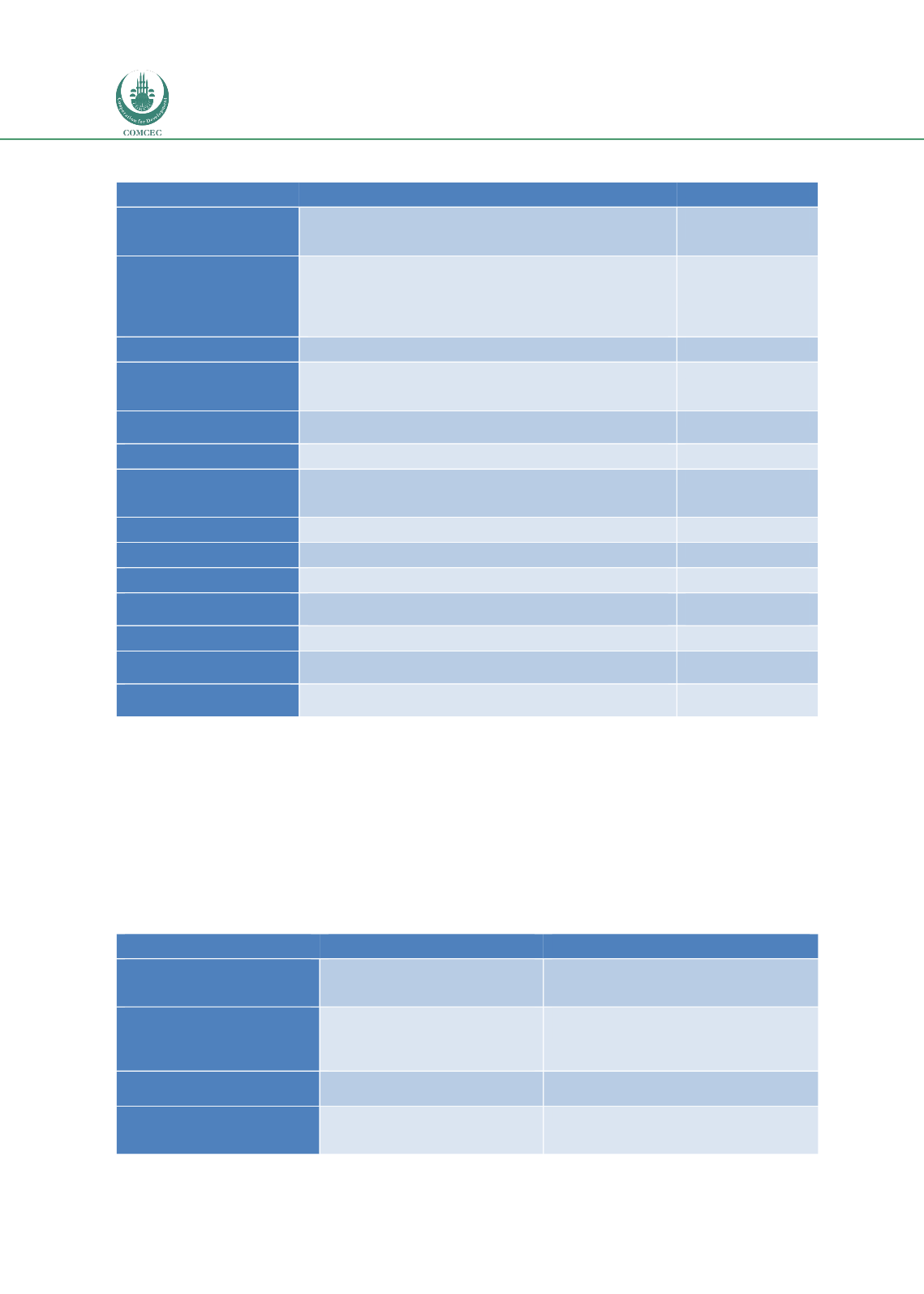

Reducing Postharvest Losses
In the OIC Member Countries
66
Table 26: Causes of PHLs reported for roots and tubers and per step of postharvest.
Postharvest step
Cassava
Sweet potato
Sorting
Discount for Broken roots
Rejection of Rotten roots
Theft
Rejection of Rotten
roots
Transportation
Breakage
Breakdown of vehicle; poor road infrastructure
Broken roots
Pilferage (theft)
Weight/quality loss
Damage due to
moving
Moulding due to
humidity
Washing
Discarded pulp
Discarded pulp
Peeling
Discarded peels
Over peeling
Inefficient hand peeling
Discarded peels
Grating/Rasping/Chipping/C
rushing
Waste liquid from grating/rasping/crushing
Inefficient rasping
Centrifuging
Waste Liquid from centrifuging
Soaking & Fermentation
Waste starch washed away or over-soaking Mouldy cassava
from fermentation
Over fermentation (too many days) reduces starch content
Dewatering/pressing
Waste liquid from pressing containing Starch residue
Sieving
Waste of fibre
Blanching/Steaming/Boiling
Loss in nutrients
Loss in nutrients
Drying
Loss as dust
Inefficient drying (taking too long)
Loss as dust
Loss in nutrients
Milling/Grinding
Loss as dust
Packaging
Poor packaging material
Quality deterioration
Storage
Loss due to moisture
Loss in value from Insect infestation
Loss due to
moisture
Note: No comments were reported for potato
Broken and rotten roots at sorting have to be discounted. During transportation, a number of
uncertainties due to the poor road infrastructure may delay supply and cause physical damage.
During processing, peeling are a main loss and over peeling can cause unnecessary losses.
Inefficiency of processing operations (peeling, grating, dewatering, and drying) can cause
additional losses in quantities but also in nutrients. Packaging and storage are also key
operations where losses occur due to quality deterioration of the roots and tubers. In order to
mitigate those losses, suggestions were made by the respondents
(Table).
Table 27: Mitigation of PHLs reported for roots and tubers and per step of postharvest
Postharvest step
Cassava
Sweet potato
Transportation
Policies to support improvement in
road infrastructures
Reduce sack sizes, better roads
Better packaging. Proper cover to prevent
roots from rain. Better roads.
Peeling
Improved peeling technologies be
promoted
Peeling machine
Select cassava with white thin skin
More efficient peeling practice. Awareness
raising in the improved procedures.
Grating/Rasping/Chipping
/Crushing
Mechanised systems
Dewatering/pressing
Better and more even pressing
Improved technologies for
dewatering
















